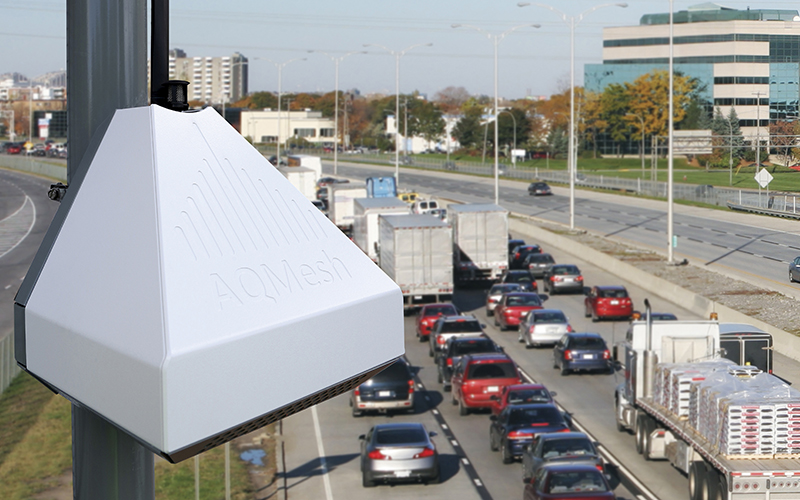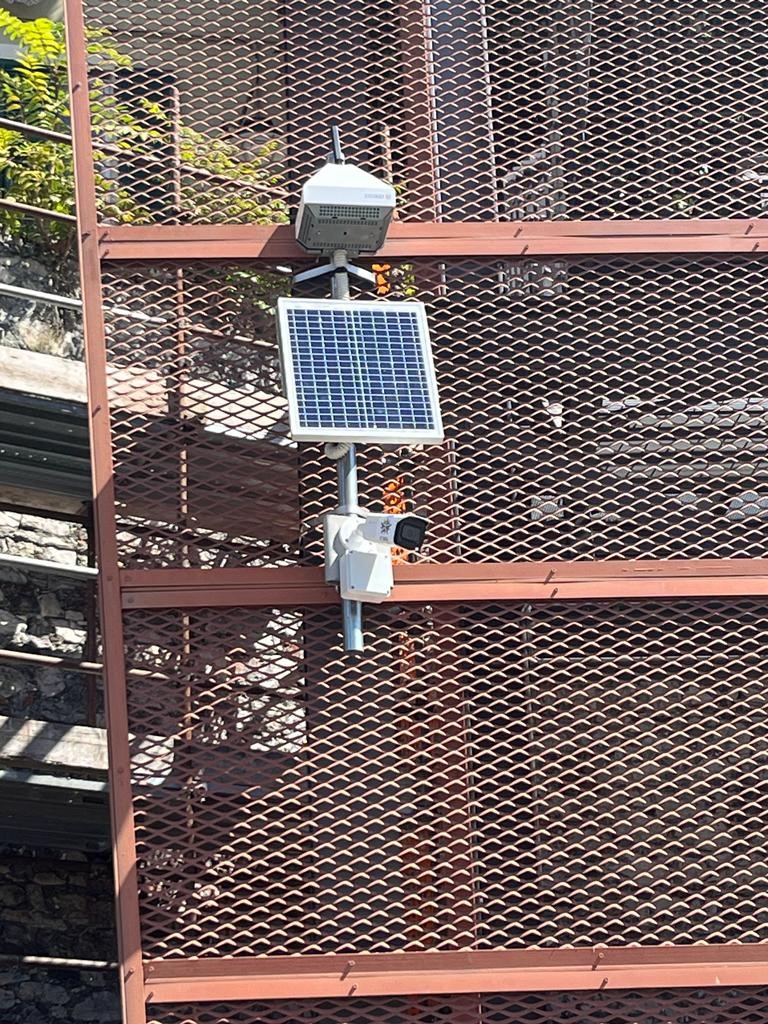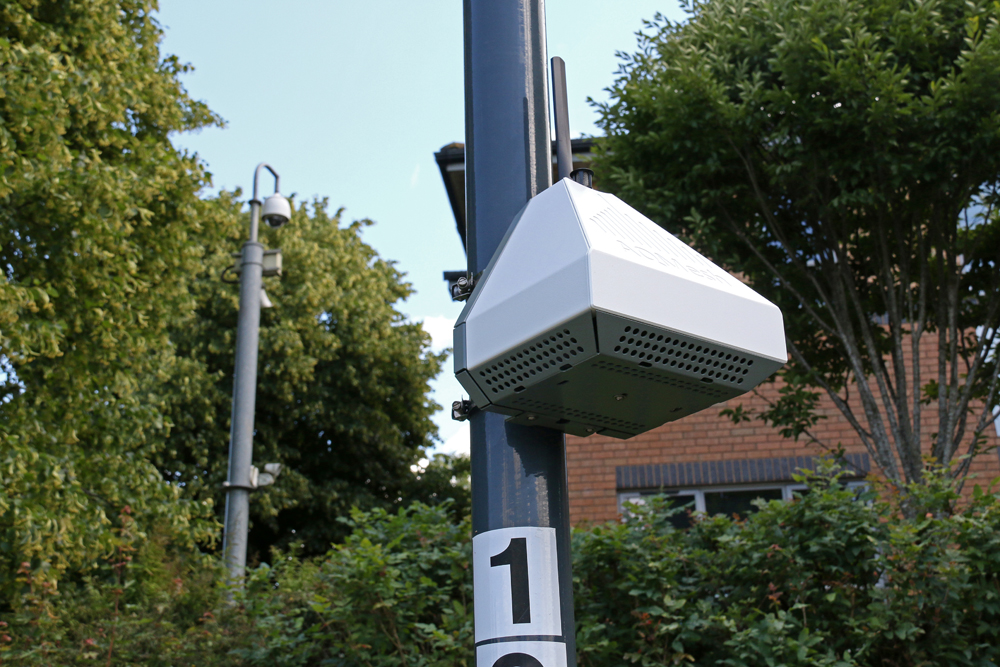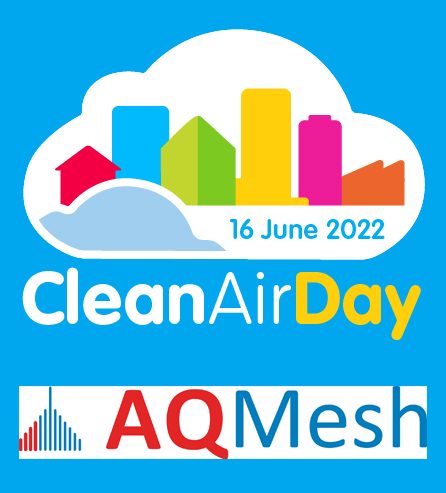AQMesh Product Manager, Tom Townend, will be presenting at the EPA 2023 Air Sensors Quality Assurance Workshop on Wednesday 26th July at 1pm ET (6pm BST). He will be speaking about our project in Minneapolis and quality control of large sensor networks measuring total volatile organic compounds (TVOC).
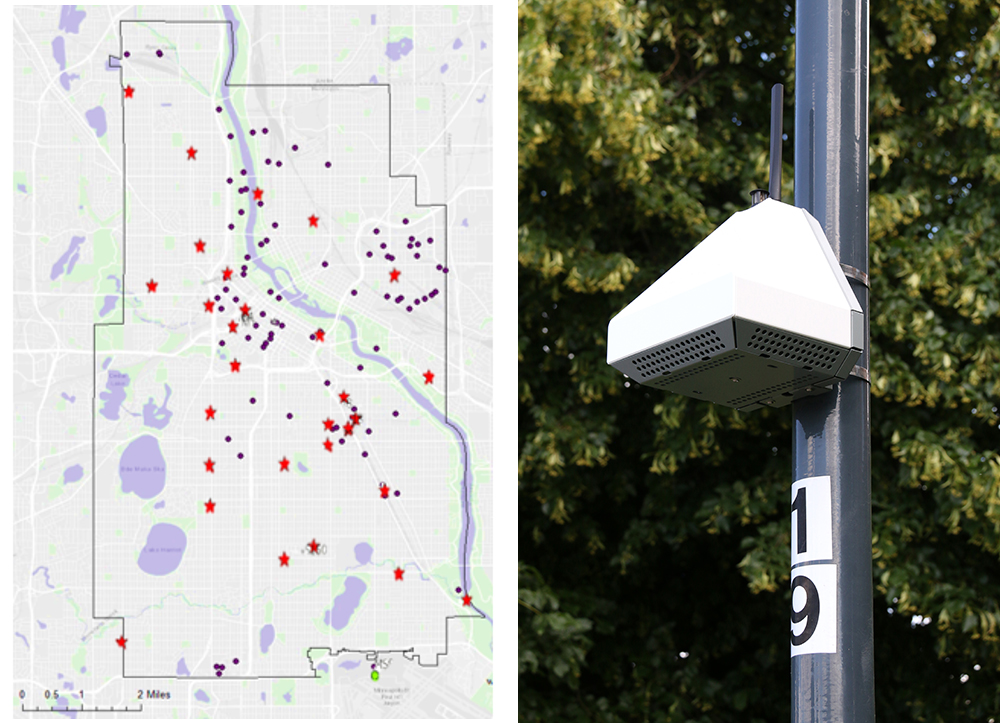 This cutting-edge small sensor air quality project takes hyperlocal monitoring to the next level by validating data – in this case the focus is TVOC – and identifying where pollution is coming from. In this case it will be possible to match the type of pollution seen with potential local sources. Whilst small sensor air quality devices generally give measurements at specific locations (to varying degrees of accuracy), the real value comes from confirming the accuracy of those readings and harnessing the power of a sensor network, particularly when combined with high quality comparison technology.
This cutting-edge small sensor air quality project takes hyperlocal monitoring to the next level by validating data – in this case the focus is TVOC – and identifying where pollution is coming from. In this case it will be possible to match the type of pollution seen with potential local sources. Whilst small sensor air quality devices generally give measurements at specific locations (to varying degrees of accuracy), the real value comes from confirming the accuracy of those readings and harnessing the power of a sensor network, particularly when combined with high quality comparison technology.
The City of Minneapolis installed 30 AQMesh pods in targeted locations, chosen with reference to the locations of potential VOC sources – such as foundries - and vulnerable communities. The pods measure NO, NO2, O3, CO and TVOC. The aim is to look for ways to reduce the exposure of local residents to harmful VOCs, such as benzene/BTEX. The two-year project will test proposed mitigation approaches.
Initially all 30 pods were co-located to show that they all read the same as each other, with any bias able to be easily corrected. Comparison against gas chromatograph (PAMS) allowed a breakdown of 60 VOCs present to be used to derive VOC-specific correction factors. Linearity was shown by an R2 of 0.68 with the pods operating uncorrected, and 0.92 with correction factors applied. Slope was shown to be 1.3 and 1 respectively, and offset around 2ppb.
The pods are taking measurements across 30 locations: one pod remaining at the reference site throughout the project with the rest positioned relative to air permitted facilities (likely pollution sources). Bag samples are being taken monthly as supplementary measurements, as part of the network, to identify which VOCs are present. These samples can then be used to determine the most appropriate correction factors to use for each individual AQMesh reading.
At the next stage of the project, Long Distance Scaling is used - an AQMesh technique for ‘network calibration’ which was inspired by an approach taken by Professor Rod Jones of the University of Cambridge with the 100+ AQMesh Breathe London pilot network. Hyperlocal events – the local ‘spikes’ – can be separated from more regional or background pollution events, by making comparisons across the whole network. Application of the right correction factors to TVOC spikes, and not background level, reduces the risk of overestimating pollution attributed to a particular source at a later stage.
Local spikes are identified with confidence and this is the starting point for pollution mitigation strategies. The next step is to understand where the spikes are coming from: local wind speed and direction information is used to create pollution rose plots. With an indication of the source and the VOC bag samples (identifying VOC variants) it is possible to use targeted correction factors to provide meaningful, quantified estimates of the fugitive VOC levels being measured by each pod.
Throughout the two-year project, network readings will be compared against the pod remaining at the gas chromatograph station. The near real-time, continuous flow of data from the 30 pods is assessed automatically, looking for failures and data points of lower confidence, and the network is scaled periodically. The same data QC approach is applied to each of the five sensors in all of the 30 pods, to provide the full circle of data confidence necessary to support mitigation investment and public sharing of pollution information for environmental justice.
The EPA EPA 2023 Air Sensors Quality Assurance Workshop is free to attend online and AQMesh distributor for North America, Ambilabs LLC, will be exhibiting at the event in person, so be sure to ask them any questions you may have about how AQMesh can support your air quality monitoring networks.

